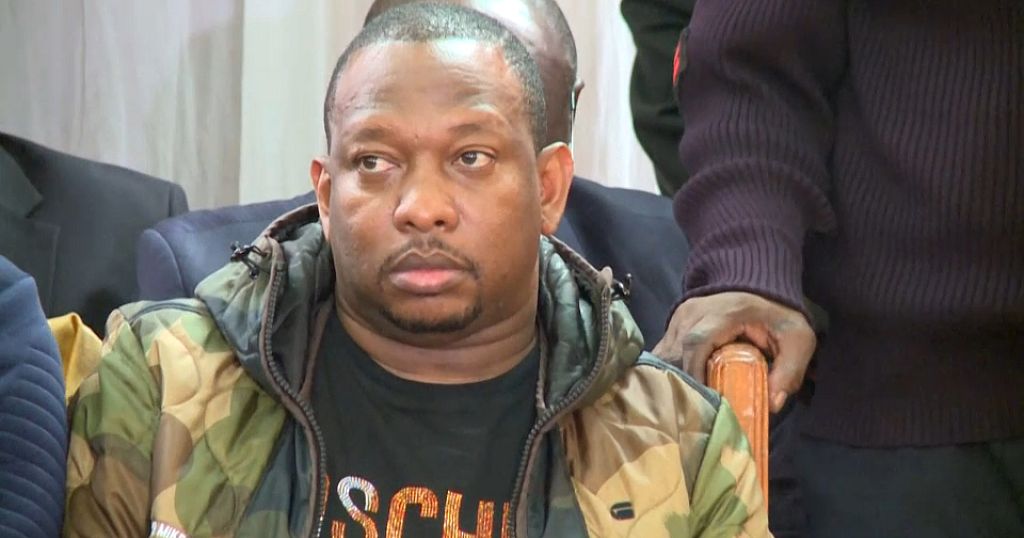The troubles of track star Asbel Kiprop should bring to the fore the lack of guidance many of Kenya’s world-beating athletes face. Beyond the glory, fame, riches and celebrity status are often bewildered young men and women.
We celebrate the ‘running machines’ who bring honour to the country, but spare very little thought to how they manage fame and wealth, and the turmoil that these often bring into their private lives.
In the wake of confirmation of his four-year ban for doping, a despairing Kiprop — the 2008 Olympic 1,500 metres champion and three-time (2011, 2013 and 2015) World Athletics Championships gold medallist — took to social media, suggesting he contemplated using his official police firearm to seek justice.
The National Police Service, to its credit, moved fast to support a clearly distressed officer. Chief Inspector Kiprop even got an audience with Inspector-General of Police Hillary Mutyambai, who lauded him as a service hero and promised to personally follow up his case and also ensure help for all other officers facing personal troubles.
That was welcome intervention from the highest level, yet it exposes the fact that many police officers facing depression and trauma receive absolutely no psychosocial support. The high suicide rate in the service and many cases of officers turning their guns on family, lovers, colleagues, neighbours or love rivals is testimony to that.
Kiprop is a high-profile athlete and we might assume that once his doping troubles started, Kenya Police Service, which is his employer, and Athletics Kenya, would have been closely monitoring him and providing the necessary guidance and counselling.
It’s obvious that established systems for such interventions do not exist. Kiprop’s social media posts served as a cry for help and attracted the necessary attention; otherwise, he would have been abandoned to stew in his own juice till worst comes to worst.
Top Kenyan runners have traditionally honed their skills in the police and other uniformed services, namely, the military and the prisons. We would do well to recall that in the past, the athletes remained under close supervision of their units even when they became global superstars.
They were disciplined officers first and athletes second. They were bound by the codes of their respective services, which closely monitored their discipline and behaviour, kept watch on their training and event participation regimes and shielded them from the clutches of exploiters.
Athletics legends such as Henry Rono and others who in the 1980s might have grown too big for their breeches learnt the hard way that indiscipline or defiance could earn them a court martial trial and lock-up like other officers.
Today, it’s a free for all. We have many athletes who serve only nominally in the military, police or prisons service but otherwise owe first loyalty to greedy agents and managers in the oft-notorious private athletics camps.
It’s under such regimes that athletes are mercilessly exploited by managers who run them to the ground in the knowledge that there is a long queue of younger runners eager to fill the gaps left by those who burn out prematurely.
That is also where the insidious culture of performance-enhancing drugs is taking root with AK seemingly unwilling to do anything because officials are often on the payroll of the camp owners.
As media, we are also culpable, holding up the patriotism card when Kenyan athletes are busted for taking drugs and penning PR pieces for the athletics camps most implicated in doping scandals.
AK also does little or nothing to help young athletes from deep in the rural areas to cope with newfound wealth and celebrity status.
Today, for every story of an athlete who made good, the streets of our athletics capitals — Iten and Eldoret towns — are littered with dozens of fallen runners who frittered away their fortunes and have been reduced to penury and seeking comfort in alcoholic haze.
We must all hope that Kiprop has been pulled back from the brink and that he will successfully fight the doping charges and reclaim his place as a running superstar or retire with dignity.
In the meantime, however, his case must serve as a wake-up call for AK, the disciplined services and state corporations that hire the bulk of our world-beating runners.
The alternative to support systems will be another tragedy as that which befell marathon superstar Sammy Kamau Wanjiru, whose death in 2011 remains an enduring mystery.

 General News4 days ago
General News4 days ago
 General News5 days ago
General News5 days ago
 General News4 days ago
General News4 days ago
 General News3 days ago
General News3 days ago
 General News3 days ago
General News3 days ago
 General News2 days ago
General News2 days ago

